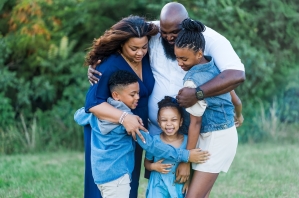
Families who foster or adopt are “flourishing” at higher rates than those who do not, and Christians show significantly greater concern for these vulnerable children compared to those without faith in Jesus, new research shows.
Titled “Engagement in US Foster Care and Adoption: 2025 Data and Trends,” the study was organized by the Christian Alliance for Orphans (CAFO) in partnership with the communications and research team at Pinkston.
The online survey, conducted in March 2025 and released last month, included 1,515 U.S. adults aged 18 and older, 64.9% of whom identified as Christian.
The report highlights key differences in how Christians and non-Christians approach foster care and adoption. Among respondents, 61% who had seriously considered fostering or adopting said their main motivation was to provide “a loving home for a child in need.”
Yet despite that, 78% of those surveyed said they had never seriously considered fostering or adopting.
The report underscores the strong role of churches and faith-based nonprofits, showing they provide greater care for orphans and foster children than those with no religious affiliation.
“Christians are much more likely to foster or adopt than their non-believing neighbors,” the report stated. “Compared to those who are Agnostic, Atheist or No Faith, Christians are more likely to have adopted (nearly 2X) or to have fostered (more than 3X). This holds true in relation to other faiths also, with Christians having adopted or fostered nearly twice as often.”
At the same time, the study found that Americans broadly want to see churches play a larger role. “Nearly two out of three people said they want to see churches more involved in supporting vulnerable children and families,” the report noted.
Faith-based nonprofits were ranked as the most trusted institutions in the U.S. when it comes to serving children and families in the foster care system. People trust them “to do the right thing for kids and families in the foster care system” more than any other institution, the report said.
Christians also show higher engagement in alternative methods of support, including donating money (45% vs. 24%), donating goods (45% vs. 24%), volunteering with child welfare organizations (20% vs. 9%), supporting adoptive and foster families (24% vs. 11%), and mentoring or helping at-risk biological families (19% vs. 9%).
The report further noted that Christians were more likely to offer skills, advocate for policy changes, and provide respite care for orphans and foster children.
Perhaps most striking, the research challenges assumptions about the wellbeing of foster and adoptive families.
“Sometimes conversations in the foster care and adoption space imply that foster and adoptive families will not thrive due to the unique struggles brought by children coming from difficult backgrounds. This data reveals precisely the opposite,” the report asserted.
According to the survey, 21% of foster and adoptive families reported they are “flourishing,” compared to just 7% of non-fostering, non-adopting families.
At the opposite end, only 4% of foster and adoptive families described themselves as “struggling,” compared to 16% among those who had not fostered or adopted.
Barriers to fostering or adoption were also explored, with financial concerns topping the list (42%), followed by lack of interest (28%) and lack of space (23%).
The report highlighted differences in motivations between men and women.
“Compared to women, men who have seriously explored fostering or adopting are more likely to have been motivated by having a close friend or family member experiencing foster care or adoption.
“Relative to men, women who have seriously explored fostering or adopting are more likely to have been motivated by providing a loving home to a child in need.
“This may reflect a need to engage men more experientially, including seeing others in their lives foster and adopt, while women are more likely to be able to engage empathetically through stories and information.”






